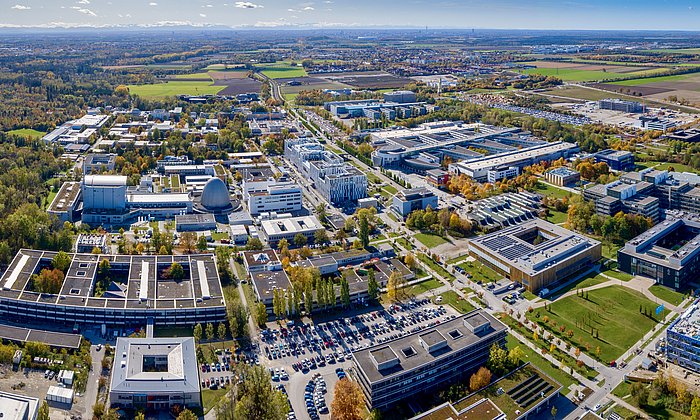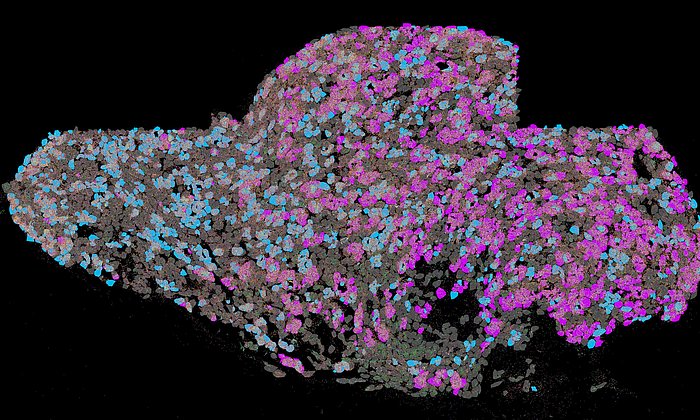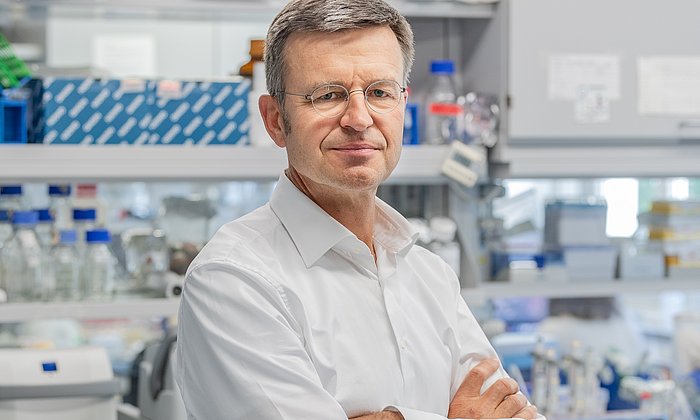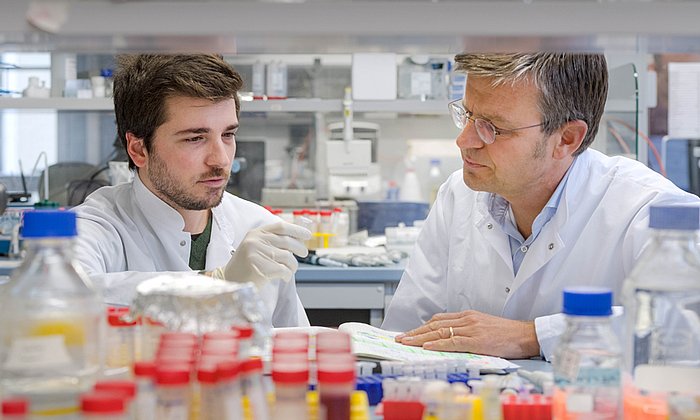New Cluster of Excellence NUCLEATE explores RNA and DNA
“We are witnessing a revolution in nucleic acid research”

Professor Engelhardt, in recent years, RNA research has gained widespread attention, even outside the scientific community. With the record-breaking development of mRNA vaccines against COVID-19, three Nobel Prizes have been awarded in the past four years. Why is that?
Scientists have known about RNA for many decades. We have also long understood that various RNA molecules play key roles in the development of disease. But now, we've reached a point where we can therapeutically target these molecules. Combined with CRISPR technology, this opens up entirely new possibilities.
Do we fully understand how RNA works?
Definitely not. But we do know a great deal more today. In some areas, we've made significant progress, such as with messenger RNAs, or mRNAs, which carry the blueprint for proteins. In others, such as non-coding RNAs, many questions remain unanswered. But research groups around the world are working on these issues, and we aim to make a key contribution through the NUCLEATE Cluster of Excellence.
What do the advances in RNA research mean for medicine?
As a pharmacologist, I focus on drugs, and at the moment we’re witnessing a revolution in this field. I expect that within the next ten years, we will see the rise of a third major class of drugs – nucleic acid-based therapeutics.
Can you explain that in more detail?
The most important class so far has been small-molecule drugs that bind to proteins in the body – everything from aspirin to cancer therapies. Since the 1980s, we’ve also had so-called biologics, including artificially produced antibodies. These also bind to proteins.
And nucleic acid-based drugs don’t?
Exactly. While they ultimately affect proteins, they do so indirectly by specifically regulating the genes or RNA precursors of proteins. For example, by binding to RNA, they can prevent certain proteins from being made in the first place. Conversely, you can introduce the blueprint for a particular protein into the body, as is done with mRNA vaccines.
What’s the advantage of this approach?
There are currently fewer than 3,000 approved drugs, and they target only about 600 of the roughly 20,000 proteins in the human body. That means conventional drug classes can’t reach a large number of biological mechanisms. With the ability to inhibit RNAs, in principle, we can influence virtually any protein.
What are the biggest challenges for RNA-based drugs right now?
The three biggest challenges are “delivery,” “delivery,” and “delivery.” That is: getting the drug safely and precisely to the part of the body where it’s needed is far from trivial – and this is the main hurdle preventing widespread adoption of nucleic acid therapeutics. But even here, we're seeing major progress. For example, we've developed a compound that is selectively taken up by specific immune cells, where it targets a microRNA and can effectively prevent tissue damage in lung inflammation.
Being a pharmacologist, would you say that research on nucleic acids is a major part of this field?
At the TUM Institute of Pharmacology and Toxicology, it certainly is. But as is often the case, colleagues from a wide variety of disciplines across TUM are making crucial contributions. Take virology, for example: my colleague Ulrike Protzer studies pathogens that are essentially replication machines for nucleic acids. Understanding these mechanisms can help us develop counterstrategies. Cancer researchers like Roland Rad are investigating how nucleic acids behave in tumors and have developed world-leading screening methods. And it goes beyond medicine.
What other fields are involved?
We also need fundamental research on the structure and function of nucleic acids. For instance, Carina Baer de Oliveira Mann at the TUM School of Natural Sciences uses innovative electron microscopy technologies to study this. Also, without bioinformatics, none of our research would be possible. We need highly specialized tools, which people like Fabian Theis develop. His AI-based tools, for example, can predict how a cell will change over time based on a “snapshot” of the molecules in it.
You have been the co-lead of CNATM, an industry-academia consortium focused on nucleic acid therapeutics, for some time now. Many institutions from Munich and Bavaria are involved, and it is the only consortium on this topic in Germany. Is this a particular strength of the region?
Absolutely. Many key players in this field are based here. Expertise comes from a wide range of areas, including immunology and the structural chemistry of nucleic acids, with colleagues like Veit Hornung and Thomas Carell at LMU. Another example is RNA research in bacteria, which Cynthia Sharma and Jörg Vogel at the University of Würzburg are working on. This is important because it could potentially lead to the development of new antibiotics based on nucleic acids.
Beyond research institutions, the greater Munich area now has the highest concentration of small and medium-sized enterprises in nucleic acid research in Germany. There’s a lot happening in this field right now, and we’re a major part of it. I'm very much looking forward to working with my co-spokespeople Cynthia Sharma and Veit Hornung to bring together all this expertise.
- Professor Stefan Engelhardt is Director of the Institute of Pharmacology and Toxicology at the TUM School of Medicine and Health. He is spokesperson of the Collaborative Research Center TRR 267 "Non-coding RNA in the cardiovascular system" and is developing RNA-based therapies for inflammatory diseases through the TUM spin-off RNATICS GmbH. He was recently elected to the Leopoldina, the German National Academy of Sciences.
- Clusters of Excellence at TUM
Technical University of Munich
Corporate Communications Center
- Paul Hellmich
- paul.hellmich@tum.de
- presse@tum.de
- Teamwebsite
Contacts to this article:
Prof. Dr. Dr. Stefan Engelhardt
Institute of Pharmacology and Toxicology
Technische Universität München
Tel: +49 89 4140-3260
stefan.engelhardt@tum.de
ipt.med.tum.de





